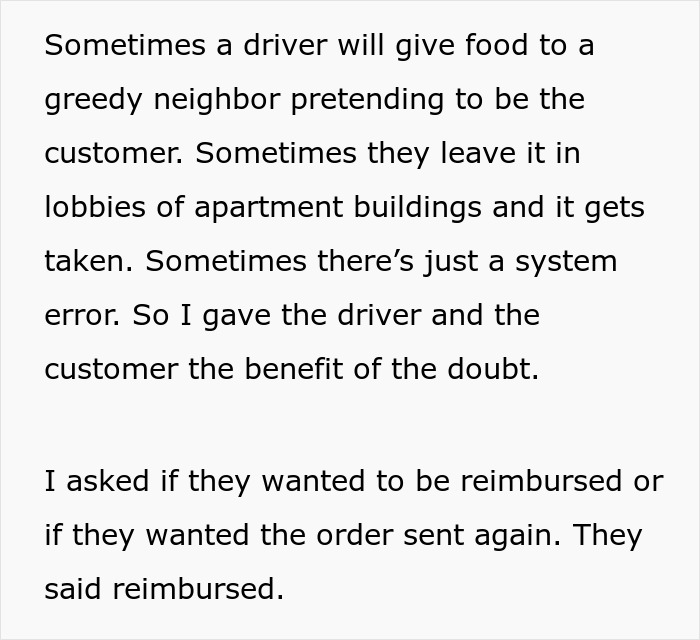“Unmasking Deception: How a Simple On-Hold Message Exposed a Scammer’s Downfall!”
The businesses are taking active measures to counter this dirty practice. DoorDash, for example, announced that it will require some customers to provide a four-digit code upon receiving their order — this will mainly target those who frequently report problems with their deliveries.
At the Food On Demand conference, restaurant operators expressed frustration over having to issue refunds when they’re not at fault.
“We know there are times that there’s a mess-up on our end where the guest genuinely deserves cash back,” said Sean Thompson, VP of information technology at Freddy’s Frozen Custard & Steakburgers. “But we know how people have learned to game the system and eat food for free.”
Freddy’s reported that chargebacks are rare in some areas but common in others, with an average of 1.5 to 2 percent of orders resulting in refund requests.
Riskified, a company that provides fraud and chargeback prevention solutions, said that a lot of what we know about food delivery fraud comes from the dark web, where fraudsters brag about their spoils and share tips on how to hustle a hot meal.
“Fraudsters targeting delivery apps often cover their tracks by erasing their cookie histories and using voice-over-IP (VOIP) manipulation as they test out stolen CCs [but] delivery policy abuse, also classified as liar buyer fraud, is a hot topic too,” Riskified wrote.
Additionally, fraud prevention is somewhat deprioritized because average order values are relatively low. Due to high volume, relatively low values, and easy accessibility, online food is tempting serial fraudsters and random opportunists alike.













